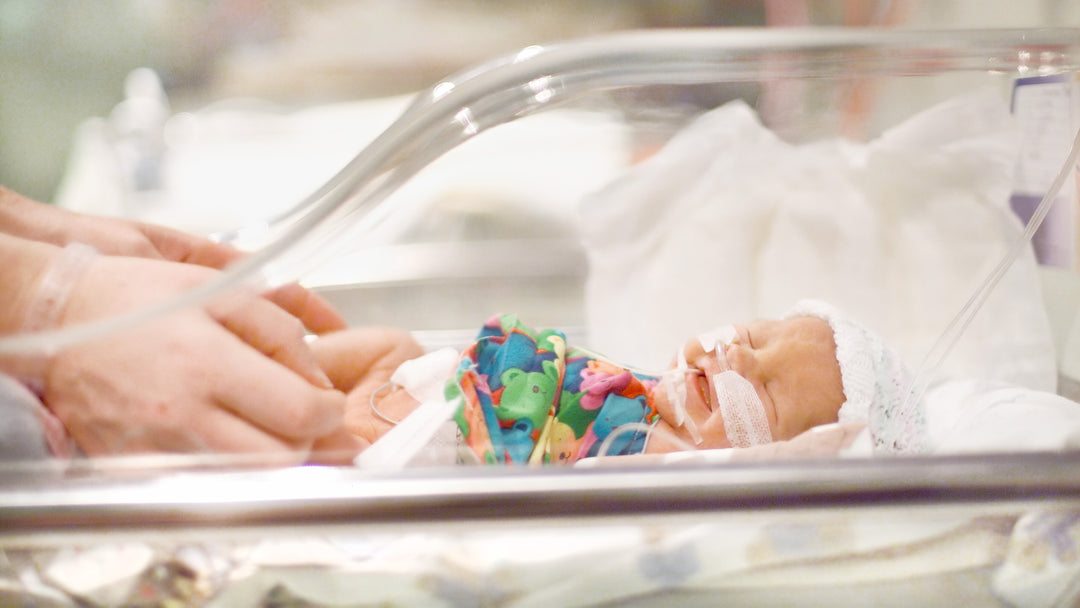The Preemie Journey From NICU to Home
The journey of a preemie, or a premature baby, can be a challenging and emotional experience for both the child and their family. Preemies are born before they are fully developed, and as a result, they may require special medical care in the neonatal intensive care unit (NICU) before they are ready to go home.
The first few weeks in the NICU can be especially difficult for families, as they often have to cope with the stress of having a newborn in the hospital, as well as the uncertainty of their child's prognosis. However, with proper medical care and support, most preemies are able to overcome the challenges they face and thrive at home.
The care that preemies receive in the NICU is tailored to their individual needs and can include a range of interventions, such as respiratory support, feeding assistance, and medications. In some cases, preemies may also need to be placed on a mechanical ventilator or undergo surgery.
One of the main goals of NICU care is to help preemies grow and develop as much as possible before they are able to go home. This may involve providing them with extra nutrition, as well as supporting their physical and cognitive development through activities such as kangaroo care, where the preemie is held skin-to-skin with a parent.
As preemies progress and become more stable, they may be able to move from the intensive care section of the NICU to a lower-level area where they can continue to receive specialized care. This transition is often an exciting milestone for families, as it signifies that the preemie is making progress and getting closer to going home.
However, the journey from the NICU to home is not always smooth. Preemies may face challenges such as feeding difficulties, respiratory problems, and developmental delays, which can require ongoing medical attention and support.
It is not uncommon for families of preemies to feel overwhelmed and uncertain about caring for their child at home, especially if they have spent an extended period in the hospital. To help with this transition, families may benefit from support from healthcare professionals, such as lactation consultants and occupational therapists, as well as from support groups and other resources.
One important aspect of caring for a preemie at home is ensuring that they receive adequate nutrition. Preemies may have difficulty breastfeeding or bottle-feeding due to their underdeveloped sucking reflex, and may require specialized feeding methods or supplements. It is important for families to work closely with healthcare professionals to develop a feeding plan that is appropriate for their child's needs.
In addition to addressing medical and nutritional needs, families of preemies may also need to provide additional support for their child's development. This may involve incorporating activities into their daily routine that promote physical and cognitive development, such as reading, singing, and playing with toys.
It is also important for families to be aware of any developmental delays or disabilities that their preemie may experience and to work with healthcare professionals to address these issues. This may involve receiving therapy or other interventions to help the preemie reach their full potential.
As preemies grow and develop, they may need to return to the hospital for follow-up care or to address any ongoing health concerns. These visits can be stressful for families, but they are an important part of ensuring that the preemie is on track for a healthy future.
The journey of a preemie from the NICU to home can be a long and challenging one, but with the right support and medical care, most preemies are able to overcome the obstacles they face and thrive. It is important for families to seek out the resources and support they need to navigate this journey and to advocate for their child throughout the process.
Caring for a preemie at home can also be a demanding and sometimes overwhelming experience, but it is also a rewarding one. As preemies grow and develop, families may be amazed at how much their child has accomplished and how far they have come from their early days in the NICU.
It is important for families to remember that each preemie's journey is unique, and to not compare their child's progress to that of other preemies or full-term infants. Every preemie has their own strengths and challenges, and it is important to celebrate their individual milestones as you support their development.
Families may also find it helpful to connect with other families who have gone through the experience of caring for a preemie, as they can offer valuable insights and support. There are many resources available for families of preemies, including support groups, online communities, and organizations that provide information and resources.
In conclusion, the journey of a preemie from the NICU to home is a challenging and emotional experience, but with proper medical care and support, most preemies are able to overcome the obstacles they face and thrive. It is important for families to seek out the resources and support they need to navigate this journey and to advocate for their child throughout the process. Caring for a preemie can be a demanding and sometimes overwhelming experience, but it is also a rewarding one as families watch their child grow and develop.








